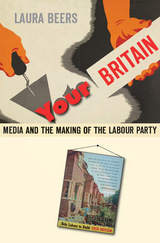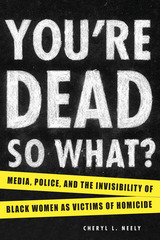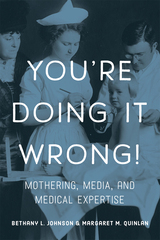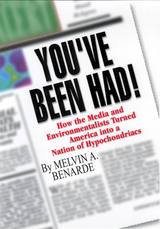4 start with Y start with Y

In the early twentieth century, new mass media—popular newspapers, radio, film—exploded at the same time that millions of Britons received the vote in the franchise expansions of 1918 and 1928. The growing centrality of the commercial media to democratic life quickly became evident as organizations of all stripes saw its potential to reach new voters. The new media presented both an exciting opportunity and a significant challenge to the new Labour Party.
Laura Beers traces Labour’s rise as a movement for working-class men to its transformation into a national party that won a landslide victory in 1945. Key to its success was a skillful media strategy designed to win over a broad, diverse coalition of supporters. Though some in the movement harbored reservations about a socialist party making use of the “capitalist” commercial media, others advocated using the media to hammer home the message that Labour represented not only its traditional base but also women, office workers, and professionals. Labour’s national leadership played a pivotal role in the effective use of popular journalism, the BBC, and film to communicate its message to the public. In the process Labour transformed not only its own national profile but also the political process in general.
New Labour’s electoral success of the late twentieth century was due in no small part to its grasp of media communication. This insightful book reminds us that the importance of the mass media to Labour’s political fortunes is by no means a modern phenomenon.


You’re Doing it Wrong! investigates the storied history of mothering advice in the media, from the newspapers, magazines, doctors’ records and personal papers of the nineteenth-century to today’s websites, Facebook groups, and Instagram feeds. Johnson and Quinlan find surprising parallels between today’s mothering experts and their Victorian counterparts, but they also explore how social media has placed unprecedented pressures on new mothers, even while it may function as social support for some. They further examine the contentious construction of prenatal and baby care expertise itself, as individuals such as everyone from medical professionals to experienced moms have competed to have their expertise acknowledged in the public sphere.
Exploring potential health crises from infertility treatments to “better babies” milestones, You’re Doing it Wrong! provides a provocative look at historical and contemporary medical expertise during conception, pregnancy, childbirth, postpartum, and infant care stages.

With all of the negative media about environmental threats over the last four decades, is it any wonder that most people believe disaster is just around the corner? But despite what the media would lead us to believe, annual reports from the Surgeons General show that Americans are the healthiest they have ever been, are becoming healthier and are, in fact, the healthiest people on the planet.
In You’ve Been Had!, Melvin Benarde aims to set the record straight and counteract the culture of complaint and worry with an unbiased account of the scientific facts — facts which suggest we are worried and frightened about the wrong things. Contrary to what the media would have us believe, he argues that the environmental factors that most adversely affect our health are those that are within our power to alter, such as smoking, diet, drugs, stress, guns speed, exercise, and basic safety precautions. Topics covered include: carcinogens and anti- carcinogens; dietary supplements and neutraceuticals; food safety, pasteurization and irradiation; genetically modified foods; microbial threats to health; hazardous and toxic waste; radiation and skin cancer; global warming; risk-taking; obesity, asthma, violence and longevity. Benarde also looks at the ways the media reports science and evidence-based medicine.
READERS
Browse our collection.
PUBLISHERS
See BiblioVault's publisher services.
STUDENT SERVICES
Files for college accessibility offices.
UChicago Accessibility Resources
home | accessibility | search | about | contact us
BiblioVault ® 2001 - 2024
The University of Chicago Press









